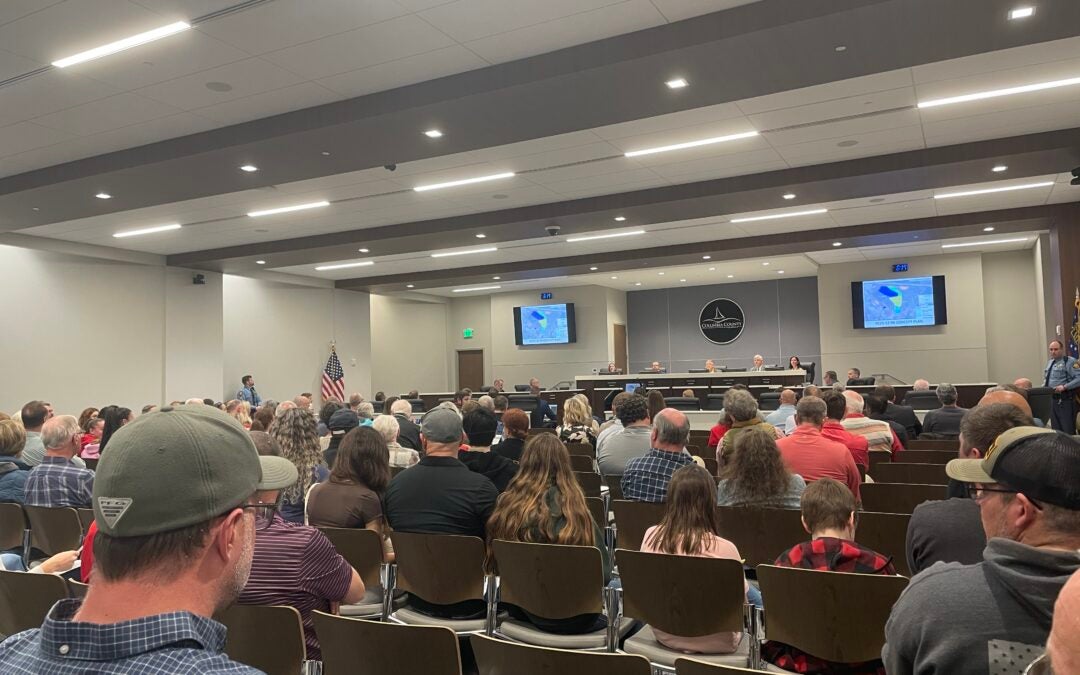(This column has been corrected to reflect that interim City Administrator Takiyah Douse did not participate in crafting the 2021 city of Augusta budget. That erroneous statement has been removed. The Augusta Press regrets the error.)
The big struggle currently in Washington, D.C. is over the so-called “debt ceiling,” and it is yet another example that most politicians from the national to the local level do not have even the basic understanding of economics.
Most of them must have missed or skipped Economics 101 class back when it was still offered in high school.
Raising the debt ceiling is akin to paying only the minimum balance on a personal credit card, maxing the card out and then asking the card issuer to raise the amount of money available on the card. Yet, without doing so, the United States will default on its loans, and that could lead to a global economic crisis that would dwarf what happened in 2008.
Solving this conundrum will take the wisdom of Solomon, yet our politicians are looking for simple answers that are the result of partisan political thinking rather that sound economics.
For example, Republicans in Congress are demanding spending cuts to pass a debt ceiling bill; despite the fact that in the past, Republicans have considered the phrase “budget cuts” taboo when they control the government.
Modern politicians of both parties bought into the idea that government intervention is an easy fix to stimulate and stabilize the national economy.
This intervention takes the form of government spending backed by massive borrowing, and this is why the United States is in debt up to its eyeballs to China, a country that has become the U.S.’s main foe on the world stage.
Keynesian economics states that it works for the government to print money and that action will have no negative effect as long as the cash flow continues.
Much faith was lost in that economic system when it became clear that printing money could not control stagflation, which is the inability to lower inflation once it has occurred. The Confederacy tried that, and inflation hit 1,000 percent in 1865.
Now you know why eggs cost so much.
During the pandemic, the national government passed the American Rescue Plan Act which pumped $1.9 trillion into the economy. According to the Bipartisan Policy Center, the cost of the ARP Act will actually be $3.5 trillion once adjusted for inflation.
The city of Augusta received $82 million in ARP funding.
When the city received the funding, the commissioners must have screened the 1985 movie “Brewster’s Millions,” a film where the protagonist, in order to receive his full inheritance, has to spend $30 million in 30 days and have absolutely nothing to show for it.
Rather than spend the money on projects that could benefit all Augustans suffering from the effects of the pandemic, the city went on a wild spending spree that included bonuses and raises for city employees.
Not only did the commission spend the money like drunken sailors under a full moon in Las Vegas and have little to nothing to show for it, but now the commission has to start searching under the sofa cushions to find the funding to maintain those raises.
Rather than acknowledge that the director of the Parks and Recreation Department, Maurice McDowell, has long been in over his head and inept at his job, the commission instead chose to hire consulting firm, Infrastructure Systems Management, LLC, offering the company a five-year consulting project at an overall cost of $6.8 million.
According to an article by Susan McCord in The Augusta Press on April 12, nearly $7 million was still not enough, and so the commission agreed on spending $98,200 to hire Raftelis Financial Consultants to create a new “strategic plan” for Augusta Parks and Recreation.
So, now the government is paying nearly 100K for a company to tell it how to spend money; meanwhile, the plumbing at Diamond Lakes is still not fully functional.
Augusta Mayor Garnett Johnson admits he is nervous about the upcoming budget discussions, especially after discovering the city may owe the IRS as much as $10 million for not filing proper Affordable Care Act paperwork.
What is a financial mess is likely headed towards becoming a disaster because the commission has taken little movement towards finding a new city administrator and instead wants to lower the qualifications to allow Takiyah Douse to become the permanent administrator.
Douse oversaw the ARP spending spree.
Unlike the federal government, the city of Augusta cannot run deficits or print money and, unfortunately, Mayor Johnson came on board as captain when the city’s ship was already in the ice field.
It’s no wonder that a majority of the commission does not want a forensic accountant to be let anywhere near the city’s financial records.
I would be yelling, “Iceberg, Right ahead!” But I think the iceberg has already been struck and it’s time to head to the lifeboats.
Scott Hudson is the Senior Investigative Reporter and Editorial Page Editor for The Augusta Press. Reach him at scott@theaugustapress.com












